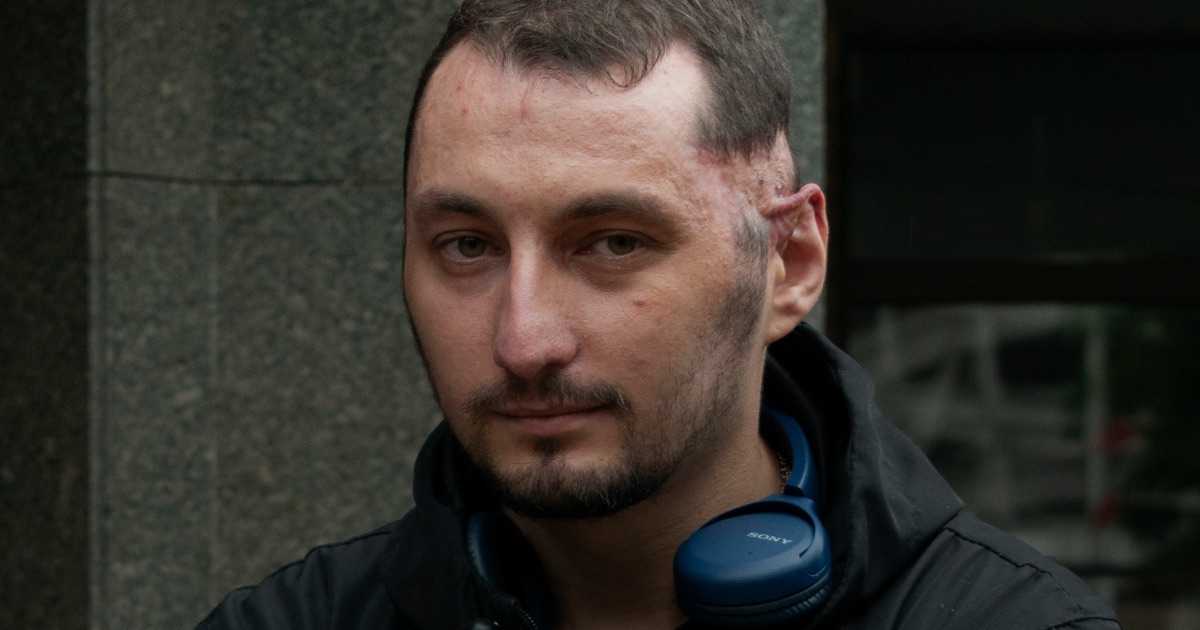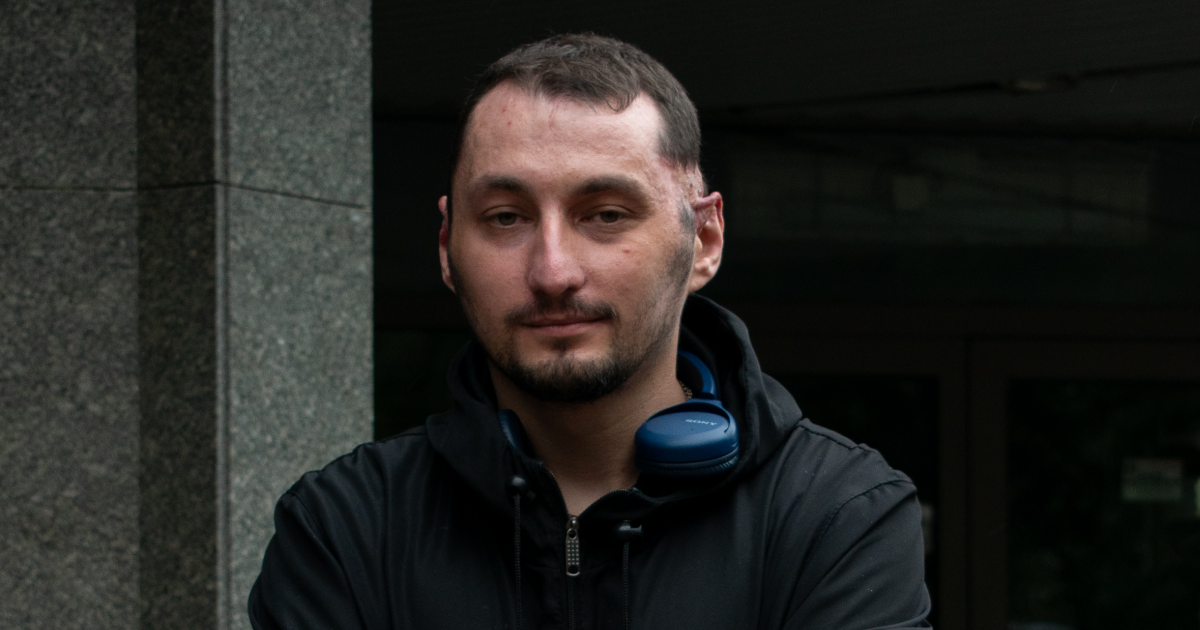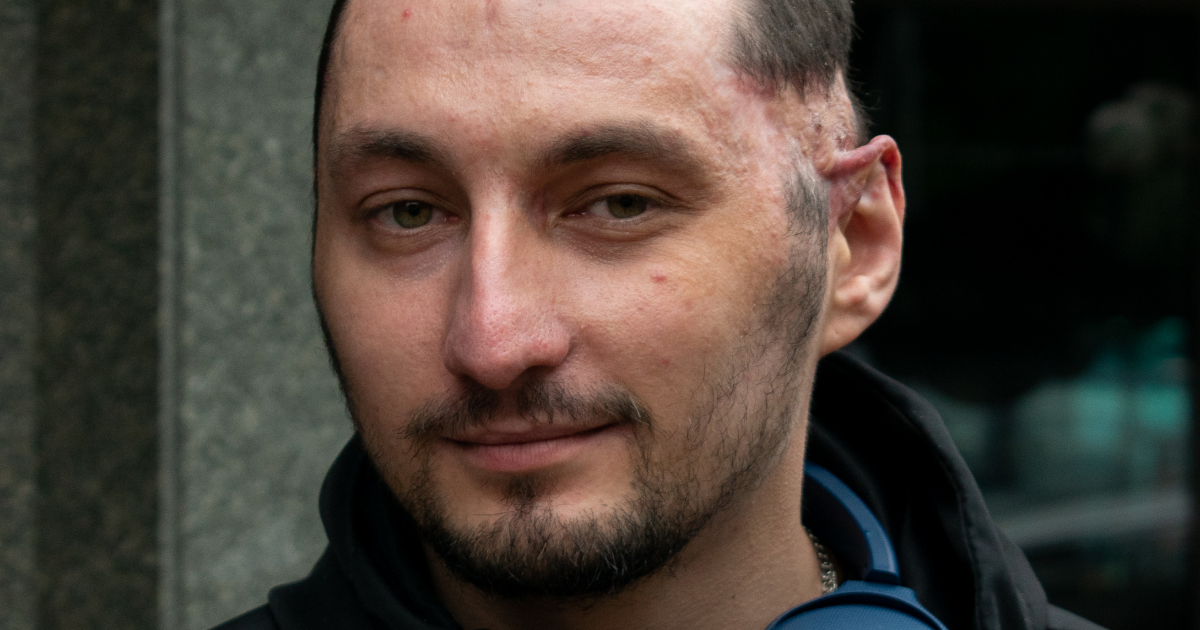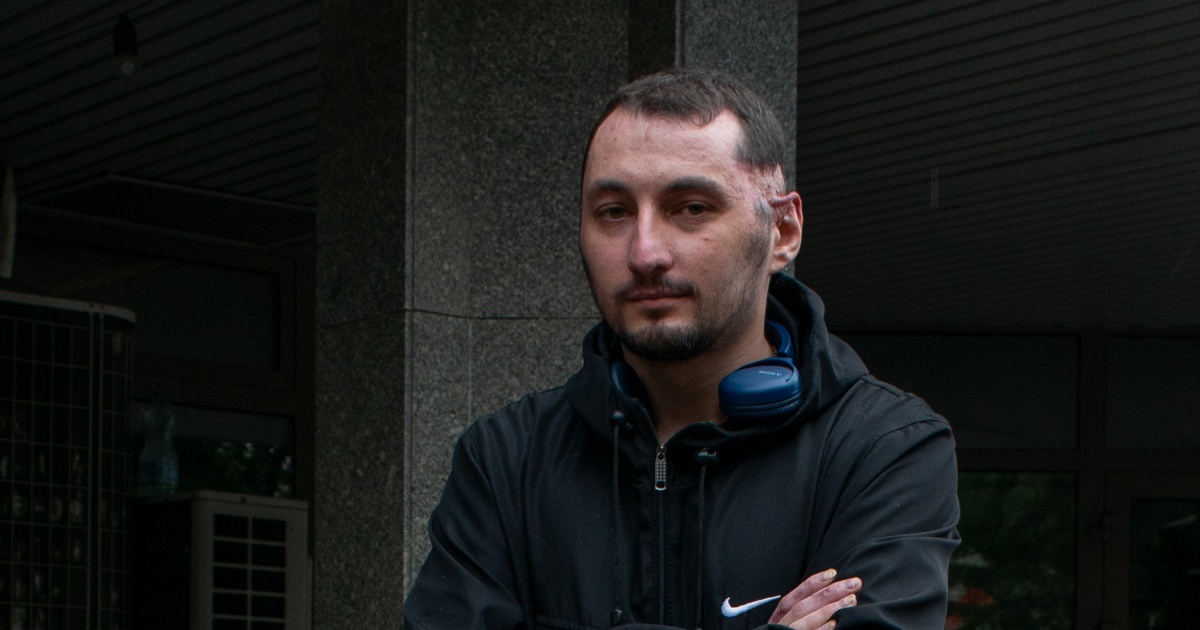"For me, the real heroes are my fallen brothers": Vasyl "Obito" Protsyshyn on "Azov," Mariupol, and the war

Vasyl "Obito" Protsyshyn is a serviceman of the Azov Regiment, a machine gunner, and a group commander. He transferred to the regiment in 2017, and before that, he served in the internal forces. In 2018, he fought on the Svitlodar bulge, and after February 24, 2022, he defended Mariupol, where he was wounded twice.
On May 16, the garrison left the factory territory at the military-political leadership's request to save combatants' lives. Nevertheless, Vasyl Protsyshyn was captured: he stayed in hospital No. 15 in temporarily occupied Donetsk and the burn centre. On June 29, 2022, Protsyshyn and 143 other Ukrainian soldiers were released from captivity.
In September, Svidomi talked to the soldier about the war, injuries, capture, and release.
Tell us about yourself. What did you do before the war?
I come from the Kherson region. I studied biology at the university until the autumn of 2013. Then, when I was a fifth-year student, I decided to take an academic leave and join the army: I joined the internal troops, and in August 2017, I could transfer to the regiment. In the internal forces, we were most often at checkpoints. Once, in 2016, during such a service near Volnovakha, I checked Redis (regiment commander Denys Prokopenko — ed.) for weapons.
How did you decide to join Azov, and how was the service there?
There was an inner desire. In 2015, I met with the regiment for the first time and talked to the guys about the internal environment. Then I realised that my place was there. Imagine: it's like working with friends. It's like you are always having fun. Although, of course, there were also some problems.
At first, I served in the regiment as an ordinary rifleman. Later, I worked at the headquarters until I got bored. I was engaged in logistics: and I didn't like it because of the large amount of bureaucracy. After that, I joined the mortar platoon, where I was until February 24. And after February 24, I only worked as a mortar gunner a few times, more often as a machine gunner.
What problems did the regiment face?
We rarely received combat kits and weapons. As far as is known, the last time we received Kalashnikov assault rifles was in late 2017 and early 2018. These assault rifles did not have enough ammunition for training even by the National Guard standard, and especially not for our training designed according to NATO standards. We made requests but only managed to get several Spartan armoured vehicles and several BTR-4s.
How did you prepare for the invasion, and how did February 24 start for you?
A few days before the full-scale invasion, preparations were underway. First, we brought ammunition and conducted an initial inspection of the city and the territories assigned to us.
On the night of February 24, a brother-in-arms ran into our barrack with the words, "the war has begun," but we did not believe him. We said, "the war is not real until something explodes." So we got into bed and heard the first explosions. Then we began to assemble.

Tell us about your experience fighting for Mariupol.
I had mixed feelings. We split into positions and began to entrench. During the first days, our artillery was the one working the most. We didn't stop for a week: we shot as long as we had something to shoot with. Then we managed to burn many columns of Russian troops, but due to the limited amount of ammunition had to switch to other targets.
We are lucky that in the fall of 2021, we completed the training on conducting battles in the city. But we were preparing more for the cleanup, not the defence. Although, of course, we practised both options. But the whole tactic was designed to ensure that we would have a rear, a retreat group that could bring in ammunition.
We were not ready for complete encirclement, so during the combat operations, we improvised. For example, one brother-in-arms managed to fend off a tank with grenades, and another did so with a MATADOR system. Another one always had the fewest anti-tank weapons but managed to destroy tanks. I managed to shoot the BMD-3 with a Kalashnikov machine gun. It was my dream. So when I saw that it was standing 15 meters away from me, I fired several times at the place where the commander was sitting. In three sets, I eliminated the vehicle with the crew.
How do you assess the strategy of the Russians?
In 99% of cases, these are untrained people. They are trying to solve any problems on the battlefield with artillery. Also, they lack outfits: they have steel helmets and old vests on.
The battles in Mariupol somewhat resembled a shooting range. Imagine a situation: the Russians occupied a building and had no means of surveillance, so they placed their people on many balconies to observe. Our military shot them down, but they put new ones to stand in.
Tell us about the situation in Azovstal.
All positions were shelled systematically. We occupied the buildings and workshops. If there were bunkers nearby, we went there. We worked in a standard way: we waited for the enemy to come as close as possible and then opened fire.
The Russians managed to occupy the slag mountain, although they suffered heavy losses. There they adjusted the artillery and aviation because they saw the whole plant in full view.
Were you wounded in Azovstal?
Yes. Before that, I hadn't even had any scratches, even though a sniper targeted me a few times in the city. My first injury was when I violated safety regulations and got shrapnel in the head. A few days later, I received the second one — burns; a "Shmel" flamethrower shot me. After that, I only had a bulletproof vest, army boots, and the remains of a jacket and belt. In such a state, I somehow reached the command and observation post. After that, I don't remember anything else.

How were the wounded treated?
"Ptashka" provided me with first aid. After that, the evacuation team took me to the medical bunker, where I spent 11 days. But I don't remember much. I had a fever and delirium all the time. They gave me a limited amount of painkillers and put me on infusion systems.
What did you think of the information about the evacuation?
Some believed, and some did not. Someone was joking that they would pick us up on Turkish ships, and we would live in Turkey and eat persimmons until the war's end.
How did they tell you about it?
My brother-in-arms came with a list. I was evacuated on the first day, May 16. It just so happened that I was carried out by a brother-in-arms whom I had previously evacuated with an injury. We were put on buses accompanied by military vehicles.
In the interview with Yanina Sokolova, you said that the Russians specifically moved the buses with you at high speed. Why?
Yes, I heard one of the medics asking the driver to slow down because we were injured, which could hurt. But he replied that this was an order. They were probably afraid of something, so they drove so fast. Then they brought us to Novoazovsk, where we spent the night. The distribution was there: some were taken to Olenivka, some to Donetsk. I was sent to the hospital and then to the burn centre.
How were you treated?
A nurse came to make bandages, give injections, and sometimes set up infusion systems. They also gave me antibiotics because my wounds were festering. I'd say there was no significant aid. When my condition became critical, I was transferred to the burn centre, where the help was more professional. The attitude varied: some did not speak to me, and some wished me death.
Interrogations were conducted. An interrogation was similar to an interview, but they asked only tricky questions. The Russians tried to make us compromise ourselves, our brothers-in-arms, our commanders, or the state. For example, they asked me how I felt about the top political leadership and the command of the regiment. They also tried to force us to take responsibility for their crimes.

They create an information vacuum in captivity: they say that they have captured Kharkiv and Zaporizhzhia. How did you perceive such information?
It was not agreed upon: everyone said something different, and the information did not match in detail. They turned on propaganda radios, but one time they stumbled upon Ukrainian radio. It was funny when all those security guards ran to shut it down.
Those released in September were diagnosed with anorexia. How was the food?
Three meals, but the portion was a little larger than a coffee cup. They gave us porridge, something similar to soups, and a few pieces of bread. The food was warm, though. It is because it was carried around by hospital workers who were rushing home. In addition, cold food could make the condition worse.
How were you notified of the layoff?
They came to the ward and told us to pack our stuff. Before that, the same person would come in for several days with a list and ask who was who. We were supposed to be exchanged on June 22. Talking to the guys, I learned that this was a typical situation when the Russians took everyone out for an exchange, and something went wrong. One group was even put on a bus but never exchanged.
I dreamed of going home for so long that for the first few days, I couldn't believe it was real. It seemed unreal. But at the same time, it is sad that not all of my brothers-in-arms have returned.
How were you met in Ukraine?
As soon as we arrived on our side, they entered the bus with the words "Glory to Ukraine." The doctors examined us, and we got food. When we arrived at the place, they were also waiting for us with food and necessities, everyone hugged us. It is incredible happiness.
The first thing I did was to call my sister. All the relatives were crying. Nobody knew that I was in captivity. They found it out when the Russians published my photo. In the hospital, they call us "sons" and "heroes," but I don't consider myself to be such. For me, heroes are my fallen brothers.
What do you plan to do after recovery?
I will return to my unit. I want to start a family and have children. After all the events, we became a bit sentimental — my whole circle decided to get married and have children. And those who already had a family said they wanted more. In Mariupol and Azovstal, we understood what was really important.


